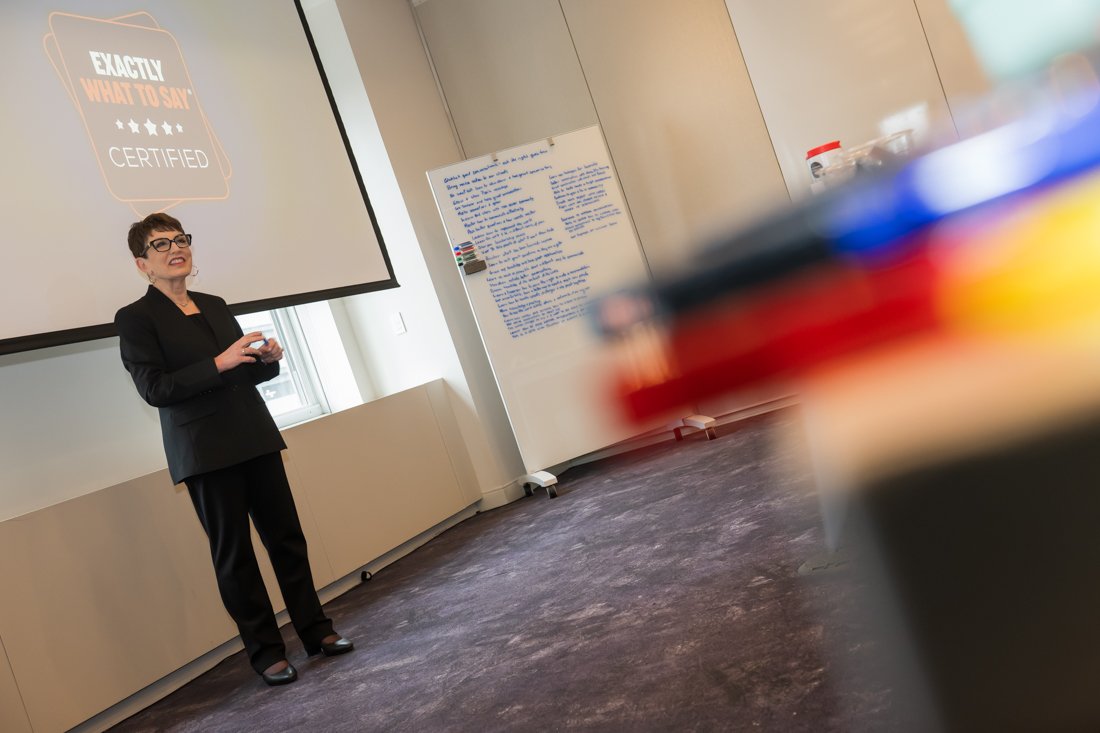Dr. Jen Forristal is a naturopathic doctor, author, speaker, and CEO of the Umbrella Project. This project specializes in supporting the next generation of kids to grow into strong, adaptable people connected through parenting.
Through her work, she has discovered that communication is the foundation of parenting, and becoming an EWTS Certified Guide has enabled her to adapt the methodology to help expand and improve communication techniques with children.
In this blog, Dr Jen shares practical ways to use EWTS to help your family.
Making Communication Easier With EWTS
If you’ve been following the EWTS methodology, you’ll know just how effectively these techniques can enhance your conversational prowess. But even though it is easier, using them with your children will require a bit of finesse because kids are very, very savvy.
At EWTS, we believe people only do things for their reasons, not yours. Kids do things for their reasons even more than adults do, and they don’t miss it when you’re trying to use your parenting savvy to convince them to do something.
Use the methodology for good, be more curious about your child’s experiences and form a supportive adult relationship. This will not only help to guide and support them and their mental health, but it will also take a lot of the stress out of communication.
Create Connection
Using better, more effective communication will help to develop better connections.
When kids have a strong connection with their peers, parents or other adults, it creates an environment where they can be significantly less stressed.
So, how can you use EWTS to create connections with kids? It starts with becoming a trusted adult for your kids, and curiosity is critical for this.
Asking questions and being curious will make it harder to make mistakes about your child's experience, harder to be judgmental, and, crucially, more challenging for them to feel like you're not listening to them because you're asking them the right questions.
Dr. Jen Forristal Tweet
EWTS In Practice
Has your child ever come to you and wanted to quit something they’re doing? It might be a sport or a musical instrument. How did you react to this?
Most parents want to encourage their children to continue because, even as a parent, one has an emotional reaction to perceived failure. People, in general, are becoming less and less proficient at dealing with disappointment and failure, especially kids. There can be a desire to just quit whenever things get complicated, and as a parent, you want to make sure this doesn’t become a go-to response for your child. But you need to be careful about your reaction.
What do you think about when your child asks to quit? Is it more about you than them? How are you supporting them through it? What’s the message that you’re trying to give them?
There tend to be two types of responses; the first might be: it’s not a big deal; if you don’t want to do it anymore, it’s okay to give up.
Or you might be the second where you think: No! They’ve come so far, and I’ve invested valuable time, money, and energy. They should persevere.
This second reaction tends to be the most common because when thinking about parenting, the outcome of your child’s success often feels like the goal.
But this means that your responses are not just about your child’s experience; they are tied in with your experiences and your feelings about what it means if they quit. Responding like this may create combativeness.
The right way to do it is to help them make the right decision, not make the decision for them or make them feel like they’re being dictated to.
How To Teach Future Proofing
You can be honest and point out all the essential things, like how far they’ve come, and it’s good for them to get an idea of the costs attributed to the hobby, but it’s crucial that their decision is theirs.
Future-proofing could involve encouraging your child to avoid taking something up that you know they won’t stick with or that costs a lot to get started. But the keyword is ‘encourage’. They should understand the thought processes, and these are responsible decisions that are important for your child to understand.
Try to find the balance between building resilience with them to keep going at things they have found challenging and being quite respectful that they are young adults working their way through the world.
Through good communication, you’ll be able to find out what they actually like, and that might mean giving up on something to take on something else.
The goal should be that they learn how to make good decisions, and as a parent, you should give them space to do this.
Autonomous Parenting
Looking back on your childhood, were there times when you found it frustrating that your parents made all the decisions for you?
Autonomous parenting for your child is vital so that they feel like they’re in control of the path that they’re on.
When you make decisions for your child, and you don’t allow them enough choice, they are more likely to end up bullying other kids because they want power somewhere. Taking decision-making away from them can make them seek power wherever else they can find it.
Language To Help Along The Way
EWTS teaches you how to influence and guide without being pushy and obnoxious. These techniques can be used in that important dialog between you and your child.
Try using these phrases and discover how to influence decisions while empowering children to make their own choices.
One of the most important things to consider when your child is getting ready to give something up is to ensure they aren’t quitting on a bad day. There’s a big difference between quitting on a good day and quitting on a bad day.
Two powerful phrases that could help you along the way are: What makes you say that? Help me understand what you’re going through right now.
By asking those deeper layers of understanding, you can really bring curiosity to the experience.
Curiosity leads to understanding. Ask yourself, do you actually understand what your child is going through?
Dr. Jen Forristal Tweet
Once you’ve discovered the ‘why’ behind a child’s desire to give up, you can use the phrase: If I can, will you…
- If I can get you to karate a little earlier so you're not always rushing, will you give it another chance?
- If I can talk to your coach with you, will you share with your coach what you've been feeling?
This technique is particularly helpful when the child is anxious about something.
The final one you can try is asking for a favor. Asking your kid for a favor is significantly more effective than telling them that they have to do something because it taps into their autonomy, allowing them a chance to do something for you.
Children want to give back to you, and asking them for a favor allows them to do this and makes them feel helpful. Obviously, they might say no, as is their right, but asking them creates a healthy environment for them to be respected and respectful.
If you’re in a good reciprocal relationship with a child, you need to understand what your child’s going through, not what you might be going through if you were your child.








